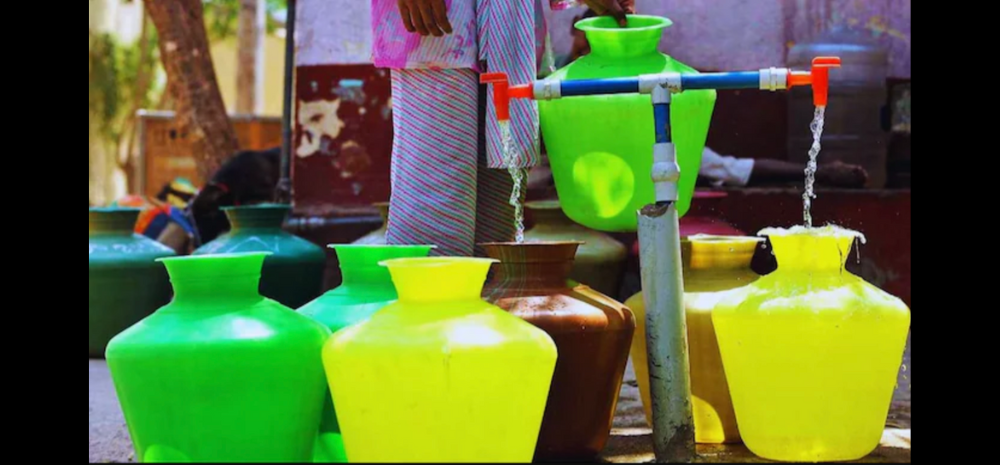Residents of Bengaluru are investigating different coping mechanisms in response to the city’s extraordinary water shortage.

The lack of water has a serious impact on places like Whitefield, KR Puram, Electronic City, and other places.
Bengaluru Residents’ Water Shortage Woes
Tankers are also used to supply drinking water to high-rise apartments equipped with water harvesting systems.
To save water, restaurants are thinking about switching to throwaway plates and cups. To encourage awareness, building associations and schools are displaying posters with catchy phrases.
Due to water scarcity, some educational institutions are turning to online instruction as a solution to their problems.
In order to save water, residents are adjusting by eating meals less frequently and taking baths on different days.
The prior year’s insufficient rainfall is to blame for the current water issue. The lack of sufficient rainfall has resulted in inadequate rainwater-gathering facilities. To control water consumption, residents are limited to the water supply at predetermined periods.
Bengaluru Residents Moving Out?
Some people are thinking about moving temporarily to places where there is more access to water. There are initiatives in place to teach kids about water conservation, including awareness campaigns and educational programs.
Some locals are already looking for alternate housing options with access to water around the clock. In the event of an emergency, mall employees from areas affected by flooding have access to restrooms.
Lake replenishment is one of the steps the government is taking to address the water crisis. In order to replenish groundwater supplies, municipal authorities intend to fill drying lakes with treated water.
Water plants and filter borewells will be installed by the Bangalore Water Supply and Sewerage Board (BWSSB). To supply tested water close to rebuilt lake bottoms, cutting-edge technologies will be employed. The goal of this program is to supplement the system with 20–30 MLD of water in partnership with the Indian Institute of Science (IISc).
These actions are part of larger initiatives to lessen Bengaluru’s continuing water shortage.











